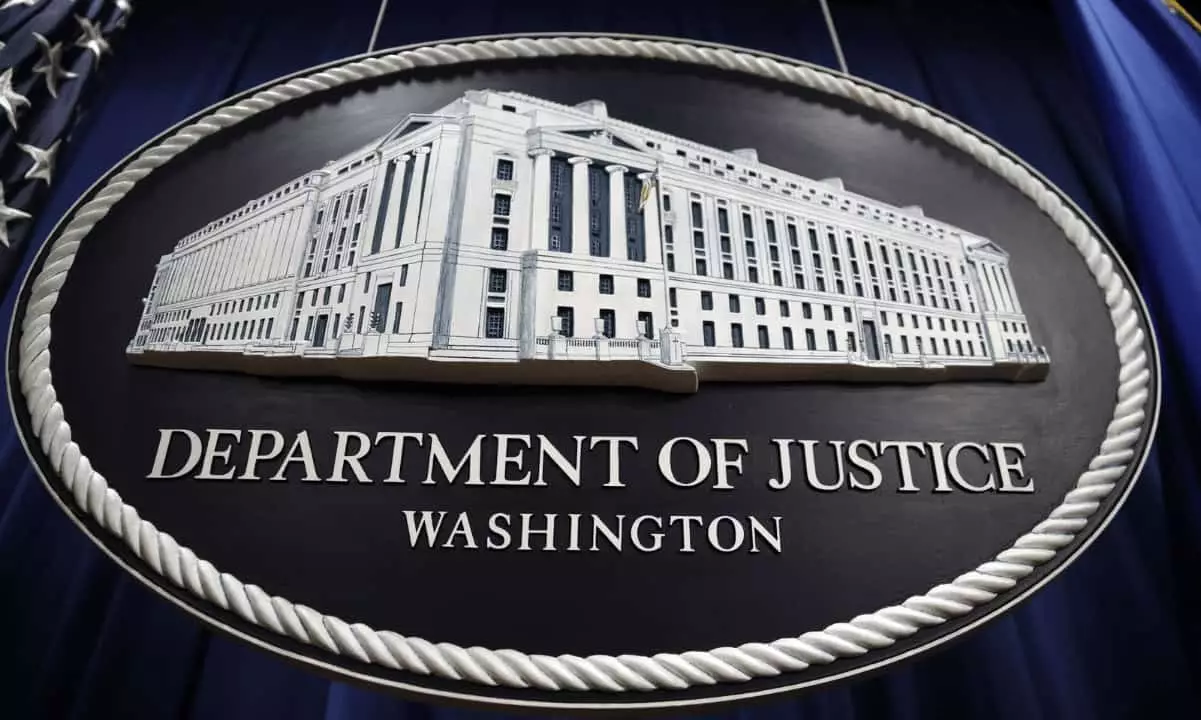In recent years, the emergence of cryptocurrencies has paralleled the rise in cybercrime, particularly relating to money laundering and tax evasion. The case of Maximiliano Pilipis, a former resident of Noblesville, Indiana, exemplifies how unregulated exchanges can serve as a breeding ground for illicit financial activities. Pilipis, now 53 years old, finds himself indicted by a federal grand jury on multiple counts, reflecting a significant breach of both financial and legal regulations.
Pilipis initiated his virtual currency exchange, AurumXchange, in 2009, right at the cusp of Bitcoin’s rise to fame. Between its inception and closure in 2013, the platform appeared to thrive, facilitating over 100,000 transactions and exchanging in excess of $30 million in cryptocurrency. However, the problem lies not in the service itself; rather it is rooted in the lack of proper authorization and oversight. Pilipis allegedly operated this platform without federal licensing, a critical failure that paved the way for potential misuse of the system.
AurumXchange provided a channel for users to convert Bitcoin and other digital currencies into U.S. dollars and various international currencies. With over 10,000 BTC accrued during its operation, this venture generated substantial income for Pilipis. The convenience offered to customers, however, came at the cost of compliance with legal statutes requiring identity verification and transaction reporting. These omissions are how the lines between legitimate business and criminal conduct blurred.
The Connection to Silk Road
A significant aspect of Pilipis’ operations was its alleged ties to the infamous Silk Road marketplace, notorious for facilitating the anonymous trade of illegal goods. The Silk Road operated on the darknet, allowing users to buy and sell illicit items with cryptocurrencies to obscure their identities. Prosecutors claim that users of AurumXchange converted their digital assets into fiat currency, a process that not only aided in money laundering but also bypassed safeguards intended to protect the financial system.
This relationship highlights the vulnerability of unregulated cryptocurrency exchanges, creating a loophole that criminals can exploit. The freedom provided by such platforms enables the transfer of funds tied to illegal activities, contributing to a significant challenge for law enforcement agencies tasked with combating cybercrime.
The indictment goes beyond traditional counts of money laundering, as it includes accusations of failing to file federal income tax returns. After ceasing operations with AurumXchange in 2013, Pilipis is alleged to have engaged in further financial misconduct by attempting to obscure the origins of his illicit gains. Reports indicate that he continued to transfer and conceal his accumulated Bitcoin, and by 2018, he was converting portions of these assets into U.S. dollars, including significant investments in real estate within Indiana.
This part of the case sheds light on the repercussions of financial crimes. Not only does it reflect the potential for criminals to reinvest their profits, but it also demonstrates how such illicit earnings can infiltrate the legitimate economy. For Pilipis, his actions have led to hundreds of thousands of dollars in income that went unreported.
As U.S. Attorney Zachary A. Myers noted, combating the criminal misuse of cryptocurrencies is a “critical priority” for the Department of Justice. The case of Maximiliano Pilipis illustrates a larger trend, where law enforcement must grapple with the complexities of digital currencies operating outside established financial regulations. Given the complexities associated with blockchain and cryptocurrency transactions, tracing and prosecuting cybercriminals poses significant challenges.
If convicted, Pilipis faces a hefty sentence, which includes up to 10 years in federal prison and a potential fine of $250,000. His case serves as a critical reminder of the importance of regulatory compliance within the rapidly evolving world of cryptocurrencies. It also underscores a pressing need for improved protocols and legal measures to address the vulnerabilities that entice criminal actors.
The story of Maximiliano Pilipis isn’t merely about an individual; it’s an alarming wake-up call to both authorities and the public about the desperate need for stringent regulatory frameworks in the cryptocurrency sector. The landscape of digital finance is shifting constantly, and failure to enact stringent regulations can inadvertently foster environments ripe for criminal exploitation.

